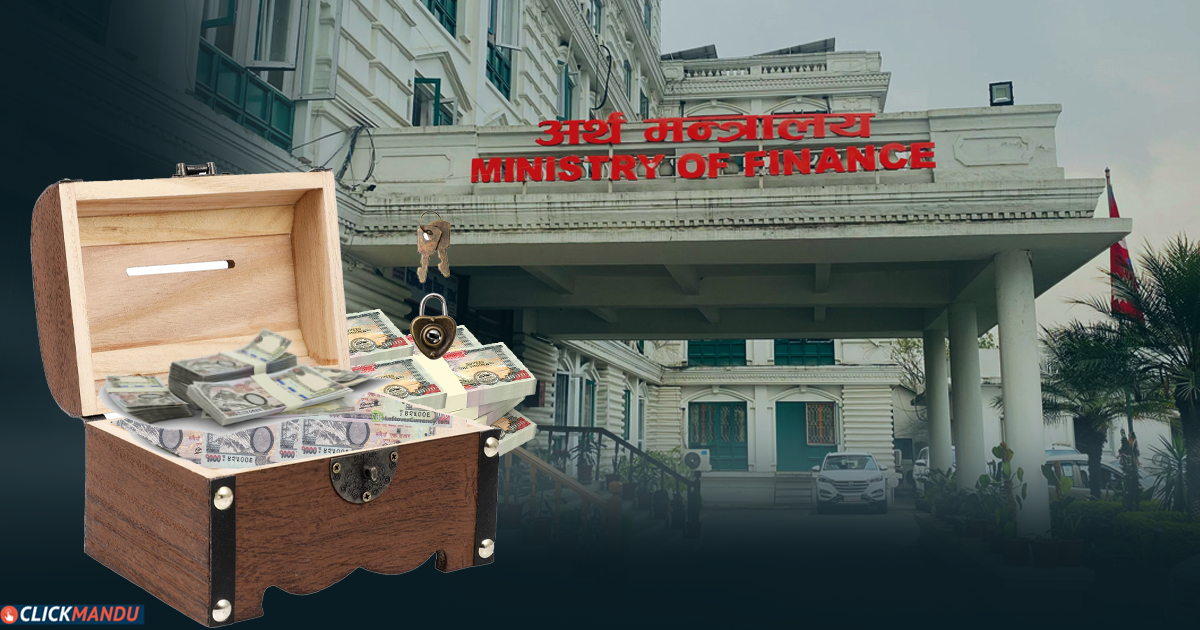Kathmandu: In a move aimed at ending the long-standing practice of diverting state funds under the guise of “development projects” for political patronage, Nepal’s interim government has put programs and projects worth Rs 1.20 trillion on hold across several ministries.
Budgets have been frozen for small-scale, politically motivated projects that were not part of national priorities, lacked proper preparation, were not included in the Project Bank, were difficult to implement, or were inserted into the budget through “top-level political directives.” Some of these projects have also had their budgets reduced.
In recent years, instead of allocating sufficient funds to high-priority, nationally significant projects, the government had been channeling development budgets to please political leaders, MPs, and party workers, according to officials.
According to Ministry of Finance spokesperson and joint secretary Tank Prasad Pandey, the suspended plans include non-priority projects from various ministries.
“Projects that were already processed and awarded under last year’s budget may later be released if their need and justification are confirmed,” Pandey said. “The total value of projects currently on hold is Rs 1.20 trillion.”
The majority of these suspended projects fall under four ministries, which together account for more than Rs 90 billion worth of programmes now on hold:
Ministry of Physical Infrastructure and Transport
Ministry of Urban Development
Ministry of Industry, Commerce and Supplies
Ministry of Agriculture and Livestock Development
Among them, the Urban Development Ministry alone has over 2,100 small-scale projects placed on hold.
According to Keshav Sharma, secretary at the Ministry of Physical Infrastructure and Transport, around Rs 13 billion worth of more than 450 small projects have been reduced or suspended.
“The Finance Ministry has frozen dozens of projects costing up to Rs 30 million,” Sharma said, adding that projects could later be released if found necessary and justifiable, with Finance Ministry approval.
Interim Finance Minister Dr Rameshwor Khanal had earlier announced plans to mobilize around Rs 100 billion by cutting budgets for politically motivated and unprepared projects. The reallocation is expected to fund post-Gen Z protest reconstruction and upcoming elections.
Sources revealed that ministers and senior officials from several ministries, including those for infrastructure, urban development, and commerce, had been collecting 5–10 percent commissions to include programmes in the national budget.
Political leaders, MPs, and party cadres at district, provincial, and federal levels had long been inserting “wishlist” projects in exchange for kickbacks.
Due to weak enforcement of fiscal discipline, party leaders had been misusing development budgets—ranging from Rs 100,000 to Rs 150 million—in the current fiscal year, under the pretext of implementing trivial projects.
Nearly 50 percent of the annual budgets of the Infrastructure and Urban Development ministries had been dominated by such politically driven programmes.
Instead of ensuring proportional and equitable distribution of funds from urban to remote areas, development budgets had turned into a political feeding ground, fostering rampant corruption.
Due to weak enforcement of fiscal discipline, party leaders had been misusing development budgets—ranging from Rs 100,000 to Rs 150 million—in the current fiscal year, under the pretext of implementing trivial projects.
Ministry-wise breakdown
Ministry of Urban Development: Out of Rs 91.34 billion total, Rs 75 billion has been frozen. 2,100 projects under Rs 30 million each have been halted. Rs 60 billion from ministry departments and Rs 15 billion under Department of Local Infrastructure have been frozen.
Ministry of Industry, Commerce and Supplies: About Rs 1.04 billion in programmes up to Rs 200 million have been cut from the capital budget. Industrial access road projects of Rs 30 million or less have been removed. The Rs 200 million budget for an industrial park in Jhapa has been cut. Budgets for four newly announced industrial zones have also been removed. Additionally, Rs 810 million has been cut from the Industrial Infrastructure Branch under the Industry and Environment Division.
Ministry of Agriculture and Livestock Development: Around Rs 500 million has been frozen—Rs 100 million from capital and Rs 400 million from current expenditure. Projects include two Rs 30 million deep boring installations in the Tarai, and Rs 60 million from the Agricultural Mechanization Center in Naktajhij. Budgets for deep boring installations, canal construction, pump lines, and transformers in Dhanusha district have also been halted.
Officials said that letters requesting budget release have already been sent to the ministry.
The freeze comes after the Madhesh Province was declared a drought-affected and disaster-prone region in mid-2025. The suspended funds were originally intended for irrigation and agricultural relief projects in dry regions.
“We’re waiting for the budget to be released,” said Tikaram Sharma, head of the Agricultural Mechanization Centre. “Once released, tenders and repair works will resume immediately.”
A Cabinet meeting on September 21 had formally decided to freeze all projects under Rs 30 million as part of nationwide expenditure control measures. The Finance Ministry has since instructed all ministries to implement the decision.



Comment Here